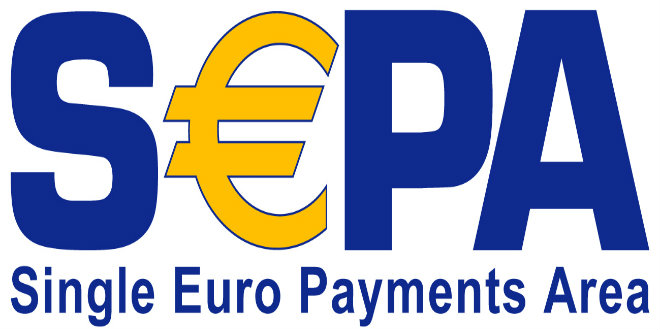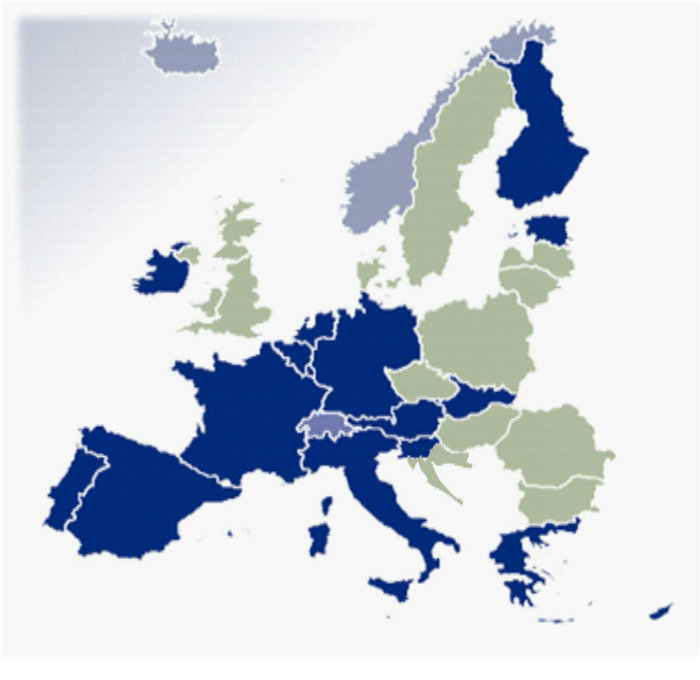Effective 1stFebruary 2014 the Single Euro Payments Area (SEPA) will standardise the processing of electronic payments in the Euro currency. The objective of SEPA is to make payments via credit transfer or debit card within the area fast, safe and efficient. The aim is that electronic cross-border payments are due to become as simple as paying with cash.
The scheme was established to overcome the technical, legal and market obstacles that exist from before the changeover to the Euro currency. The goal is to create a single market for Euro-denominated retail payments. SEPA will enable users to make cashless payments to payees anywhere within the SEPA zone using a single payment account and a single set of payment instructions.
This will allow for the easy movement of food, services and capital throughout the region. What this means is that citizens cannot only live and work anywhere in the area, but can also benefit from competitively priced goods and services, throughout the region.
The Euro currency came into effect in 1999 as an accounting currency (cash and coins were first circulated in the initial Euro currency countries in 2002). The long-term plan has always been to move away from the fragmented national payment markets and to move towards a European Union wide market that is more efficient.
SEPA will impact all citizens operating/living within its boundaries that hold a payment bank account. Those operating in participating countries will soon be able to make and receive Euro-denominated payments with a standard set of terms and conditions – regardless of whether the payments are made within or across national borders.
People will not be obliged to maintain bank accounts in any one particular country in the region to make or receive payments. An account anywhere in SEPA will be able to make or receive a Euro-denominated electronic transaction anywhere else in SEPA with ease. An Irish person living in France will not have to set-up an account in the host country to pay utilities and rent and so on electronically (as has been the case). SEPA will make life easier in this respect – People will no longer be constrained by national borders for banking and will instead be able to bank wherever suits them within the SEPA zone.
New business rules will be implemented with regard to payments. Along with this a set of common standards and requirements for issuing and executing electronic payment instructions in all participating regions will be introduced.
From 1st February 2014 it will be compulsory for countries to withdraw existing “national only” payment standards/systems and it will be mandatory for members to migrate all electronic payments to the SEPA standards.
SEPA is being rolled out in thousands of banks in the countries and regions included in the scheme – the 27 European Union members (28 with the inclusion of Croatia in July 2013) as well as Norway, Monaco, Switzerland, Iceland and Liechtenstein. SEPA in Ireland is being overseen by the National Payments Plan (NPP) Steering Committee along with a National Payments Plan sub group which consists of representatives of the Central Bank of Ireland, Government, banks, businesses and consumers.
The European Union Commission has made SEPA migration mandatory and businesses, regardless of size, will have to make adjustments to their processes to ensure they comply with SEPA on credit transfers and direct debit payments – A lot of engagement is required with banks and advisors prior to the February 1st 2014 deadline.
For SEPA to succeed it will require active participation from these new payment scheme users – namely public administrators, companies and consumers alike. SEPA will affect the vast majority of people and should not be overlooked. Timely migration is recommended – the deadline is quickly approaching.
When SEPA is effective the cost associated with making a payment outside of your own nation should not be any more than within your own national borders – this will be a huge benefit to both consumers and companies.
It is important to note that payments made in a currency other than Euro and to/from non SEPA countries may still attract foreign exchange charges and/or transaction fees.
Those who currently have direct debits leaving their accounts should experience a seamless transition. However, those collecting payments (the payees) of the direct debits will need to make changes to their internal systems. This is of particular importance for companies.
SEPA will have the biggest impact on companies as the standardised payment infrastructure should open up new possibilities to expand business beyond country borders. Common standards, faster settlements and simplified processing will improve cash flow, reduce costs and facilitate access to new markets further afield than before.
Like consumers businesses will need to use Bank Identifier Codes (BIC) and International Bank Account Numbers (IBAN) to identify their bank and account rather than the current identifiers (National Sort Codes and account numbers). Companies should obtain all relevant details on SEPA standards from their banks – the advice is to act quickly and to make the relevant modifications to existing systems or develop new ones without delay. Information technology system providers should be consulted from the outset as the migration could significantly impact these systems.
It is essential for companies to ensure they are informed on all relevant matters here.





Leave A Comment